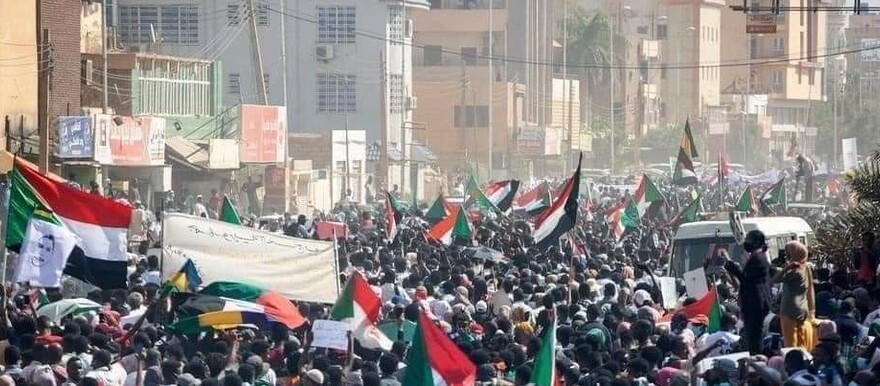Thousands of demonstrators took to the streets of Sudan’s capital of Khartoum and other cities on Tuesday, marking the first anniversary of a coup that derailed a transition to civilian rule.
In a statement, the Sudan Doctors Committee said a protester was killed after being hit by a small security force truck while demonstrating in Omdurman, the twin city of the capital Khartoum. The victim’s identity has not been revealed.
Videos published on social media showed thousands of marchers in Khartoum with flags and drums.
Speaking to Radio Tamazuj, several protesters said they demand “soldiers go back to the barracks”.
Adil Bakhit, a protester in Khartoum, said that a year has passed since the military coup that derailed a transition to democratic rule in Sudan and pro-democracy groups are still in control of the political scene.
Meanwhile, Najda Mansour said that the pro-democracy groups are still firm and determined to achieve the dream of a democratic country despite several challenges.
Netblocks, an online network tracker, announced early Tuesday that internet services across the country were blocked. Various Sudanese pro-democracy activists and local journalists reported security forces fired tear gas at protesters and earlier closed off bridges leading into Khartoum.
In a statement published late Tuesday, the Sudanese police accused the demonstrators of attacking various military sites. The police said rebel groups and “sleeper cells” were operating among the demonstrators and targeting the security forces with explosive devices. The statement provided no evidence.
Since its takeover, the military has suppressed pro-democracy marches, with as many as 118 protesters killed, according to statistics published by the Sudan Doctors Committee.
Sudan’s military leader, Gen. Abdel-Fattah Burhan, and his deputy Gen. Mohammed Hamdan Dagalo, were meant to oversee Sudan’s democratic transition after the country’s autocratic ruler Omar al-Bashir was toppled in a popular uprising in 2019.
But last year, General Burhan dissolved the ruling Sovereign Council, arrested the transitional prime minister and unseated the civilian faction of a power-sharing government that had been in place. He later said he acted to stop a civil war.
In recent weeks, internationally backed talks between Sudan’s pro-democracy movement and the ruling military have made some progress.




